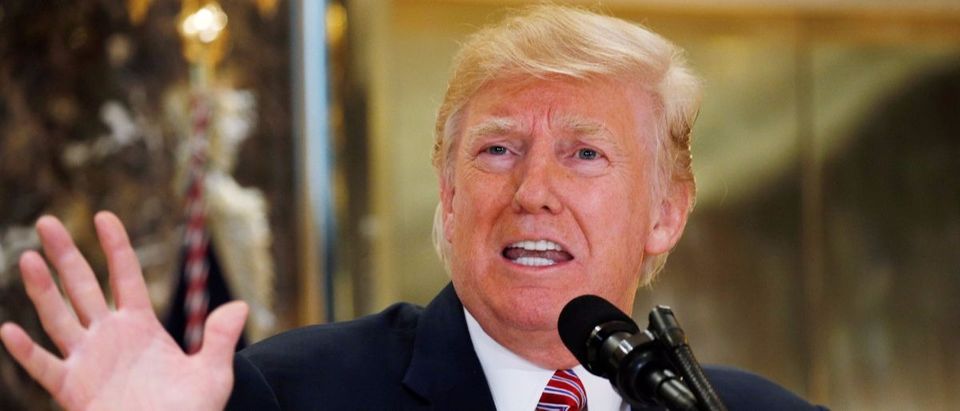Rather than celebrate their recent Alabama Senate upset, Democrats should worry about Trump’s approaching economic reset. An already growing economy, soon to be bolstered by tax reform, could deliver Trump a potent political opportunity. Not only must this concern Democrats, but also that they may be inadvertently increasing that opportunity.
Former House Speaker Tip O’Neill stated “all politics is local.” Alabama’s recent Senate special election proves it again. Nothing is more local than the candidates. Cursed with a bad one, Republicans converted a red state Trump won by 28 percent into a razor-thin blue upset.
Considering their deluge of the last two years, Democrats are understandably seizing the first silver lining they have found. Yet before making too much of this political positive, they should look at their looming economic negative.
Just as Alabama reproved the local politics dictum, there is no broader or more important local issue than the economy. By affecting broad areas locally, America’s economy can nationalize elections.
It is no accident only four presidents seeking election have lost since 1932: Herbert Hoover (1932), Gerald Ford (1976), Jimmy Carter (1980) and George H. W. Bush (1992). What all had in common was annual U.S. real gross-domestic product contracting within a year of their losses. Only Harry Truman (1948) bucked this trend. Every other president seeking election had positive growth within a year of their election …and all won.
Americans expect a good economy. They reward presidents for it and punish presidents for rare bad ones. For Trump, today’s is a huge opportunity — one sorely needed and one Democrats are partly helping him to attain.
First, Trump benefits greatly from his Democrat predecessor’s economy. Obama’s averaged annual real GDP growth of just 1.5 percent from 2009-2016 — less than half the 3.1 percent from 1946-2008.
Having set the bar low, even medium growth under Trump will look vastly better. Simply scan recent headlines accompanying just two consecutive quarters of 3+ percent growth, which just matched the pre-2008 annual average.
Second is tax reform. Virtually all nonpartisan estimates project tax reform will strengthen the economy, at least in the short-run. So, the economy is even more likely to surpass moderate growth.
Further is tax reform’s consequential political aspect. Signing tax reform means Trump got an identifiable reason to claim credit for an improved economy. He clearly will not be shy about doing so, and many Americans likely will make the same connection.
That linkage could be Trump’s connection to voters he needs, but lost in 2016. According to exit polling, Trump lost 16 percent of conservatives. This group should be particularly attracted to his championing of tax reform. Trump also lost 52 percent of moderates. This group should be particularly amenable to a strong economy — even if they were not attracted to Trump.
Making matters worse, Democrats are giving Trump a clear partisan dividing line on the economy and tax reform. The previous eight years’ subpar economic performance was Obama’s. Now on tax reform, no Democrats have supported either the House or Senate versions.
Clear partisan lines are not necessarily bad. Republicans similarly opposed Obamacare. However, such defining positons come with a caveat: You better be right. If wrong, you leave a gaping opening for opponents’ “I told you so” — and voters’ retribution.
Finally, Democrats are accentuating their opposition by dismissing the economy performing anywhere close to Trump’s predictions. Diminishing expectations for your opponent, while perhaps personally satisfying, can also lower them to easily surmountable levels. Democrats should have learned last year just how counterproductive this can be.
Instead of looking at politics in the Alabama crystal ball, Democrats should take a harder look at the economy through America’s front window. Trump has already beaten them once without having the economy behind him. Democrats should be preparing for how much more formidable he could be if it is.
J.T. Young served under President George W. Bush as the director of communications in the Office of Management and Budget and as deputy assistant secretary in legislative affairs for tax and budget at the Treasury Department. He served as a congressional staffer from 1987 to 2000.
The views and opinions expressed in this commentary are those of the author and do not reflect the official position of The Daily Caller.


